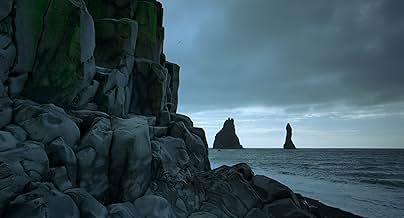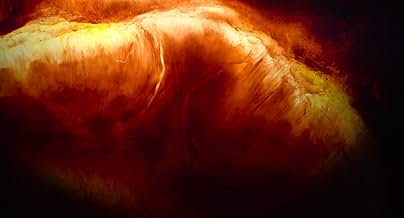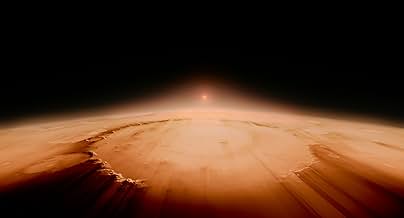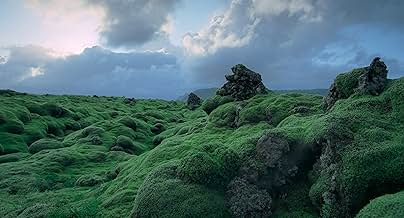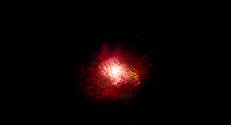IMDb RATING
7.0/10
3.2K
YOUR RATING
This documentary examines the origins of the universe, including the beginning of life on Earth.This documentary examines the origins of the universe, including the beginning of life on Earth.This documentary examines the origins of the universe, including the beginning of life on Earth.
- Awards
- 1 nomination total
Theo Bongani Ndyalvane
- Early Human
- (as Theophilus Bongani Ndyalvane)
- Director
- Writer
- All cast & crew
- Production, box office & more at IMDbPro
Featured reviews
10pyblain
It's astonishing how fortunate we are to feel the way we do when watching nature unfold. This majestic and ethereal spectacle that warms our hearts. If beauty is in the eye of the beholder, we must feel infinitely thankful for how evolution shaped us in a way that lets us marvel so profoundly at nature.
The more we learn about how humans work, how society works, how civilization works, how biology and physics work, how the collapse of a star will impact distant galaxies, the more we realize that everything is connected. Time and space is one sandbox in which infinitely small events play with other ones of unbounded cosmological proportions, all in a perfectly deterministic manner.
This teaches us that the only way we can feel what we're all truly looking for, which is to be loved, is to show our love to the world. To show it to other people, to animals, to plants, to the wind, to nature. Because nature is everything there is to know, and love. Because you are nature. Because loving nature is loving yourself. And the more you will learn about the world, the more this will all make sense.
This is what this movie is about.
The more we learn about how humans work, how society works, how civilization works, how biology and physics work, how the collapse of a star will impact distant galaxies, the more we realize that everything is connected. Time and space is one sandbox in which infinitely small events play with other ones of unbounded cosmological proportions, all in a perfectly deterministic manner.
This teaches us that the only way we can feel what we're all truly looking for, which is to be loved, is to show our love to the world. To show it to other people, to animals, to plants, to the wind, to nature. Because nature is everything there is to know, and love. Because you are nature. Because loving nature is loving yourself. And the more you will learn about the world, the more this will all make sense.
This is what this movie is about.
How do you condense the story of the universe into just 45 minutes? Well, you need:
I think this mostly works. It really does aim to encompass as much as it can in less than an hour, all with the patient pacing most Malick films have. It makes for an interesting experience. Sometimes, it feels a little too abstract, but other moments are quite powerful.
Still, it feels like a companion piece to Tree of Life, and almost like an extended version of that film's birth of the universe sequence. I don't think it's nearly as powerful as that sequence in that film, but it scratches a similar itch. Parts near the end reminded me a little of Koyaanisqatsi, too. It's also not nearly as good an exploration of Planet Earth and its inhabitants as that iconic documentary is.
But for any grievances I have, this documentary/art film is still very impressive. I know something would have been lost from having watched it at home, too, instead of an IMAX screen, so I'm willing to be a little more generous when it comes to rating this.
- Poetic and vague voiceover narration from Brad Pitt
- Beautiful images
- A keen ear for music to match to said images, and
- To be Terrence Malick
I think this mostly works. It really does aim to encompass as much as it can in less than an hour, all with the patient pacing most Malick films have. It makes for an interesting experience. Sometimes, it feels a little too abstract, but other moments are quite powerful.
Still, it feels like a companion piece to Tree of Life, and almost like an extended version of that film's birth of the universe sequence. I don't think it's nearly as powerful as that sequence in that film, but it scratches a similar itch. Parts near the end reminded me a little of Koyaanisqatsi, too. It's also not nearly as good an exploration of Planet Earth and its inhabitants as that iconic documentary is.
But for any grievances I have, this documentary/art film is still very impressive. I know something would have been lost from having watched it at home, too, instead of an IMAX screen, so I'm willing to be a little more generous when it comes to rating this.
Nothing new, visually or otherwise. It's not even boring, it's just plain dull and unengaging. Watched it on MUBI and the best they could do apparently was 1080p, so I got to see all the artefacts and downsampling that just rendered it practically unwatchable. Just watch BBC's Planet Earth or Cosmos instead.
A very slow film with little narration. The CGI blends seamlessly and is undetectable. Many (scientific) inaccuracies though, either from artistic expression or from ignorance. I viewed this at the Smithsonian's laser iMAX for $9. What I thought would be the highlight of my trip to Washington turned out to be the trough. This was the newest iMAX film there (and made especially for the Air & Space Museum?) and with the most renowned director and narrator. I only realized afterwards why it had only a single showing compared to the other films. The iMAX theater was not any better than the one back home, and I dozed off a few times.
Just like most of Malick's work from the last 20 years, pretentious, over-the-top, and boring. Some of the imagery and effects were good, except for the shots that were just made up nonsense. You don't even know what it is that you're watching when these appear, you'll know them when you see it. Also, Brad Pitt's whispering random words every 10 seconds seem to be just incoherent gibberish. Like a bad attempt at poetry? Pass on this one.
Did you know
- TriviaTwo versions were made: a 45-minute IMAX version with Brad Pitt narrating and a 90-minute 35mm version with Cate Blanchett narrating, titled Voyage of Time: Au fil de la vie (2016). As of 2021, the "Life's Journey" version has yet to be released in the United States.
- Alternate versionsTwo versions were made: a 45-minute IMAX version with Brad Pitt narrating and a 90-minute 35mm version with Cate Blanchett narrating, titled Voyage of Time: Au fil de la vie (2016).
- ConnectionsVersion of Voyage of Time: Au fil de la vie (2016)
- SoundtracksSymphony No. 9 in D Minor ('Choral')
Composed Ludwig van Beethoven
Performed by Nicolaus Esterházy Sinfonia and Chorus
Conducted by Bela Drahos
Courtesy of Naxos
By arrangement with Source/Q
- How long is Voyage of Time?Powered by Alexa
Details
- Release date
- Country of origin
- Official site
- Language
- Also known as
- Voyage of Time: An IMAX Documentary
- Production companies
- See more company credits at IMDbPro
Box office
- Gross US & Canada
- $55,409
- Opening weekend US & Canada
- $55,409
- Oct 9, 2016
- Gross worldwide
- $337,038
- Runtime44 minutes
- Color
Contribute to this page
Suggest an edit or add missing content

Top Gap
By what name was Voyage of Time: The IMAX Experience (2016) officially released in Canada in English?
Answer






